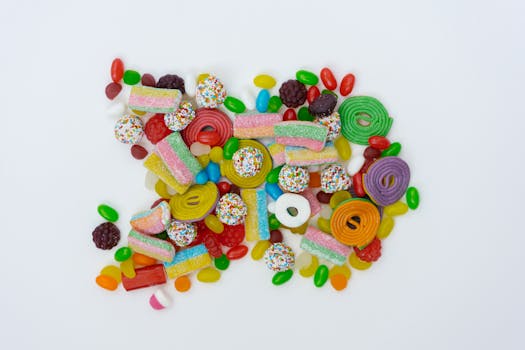Licorice is a popular treat for humans, but is it safe for your feline friend? If your cat has shown interest in this sweet snack, you might be wondering if it’s okay to share. While it may seem harmless, licorice can pose risks to cats due to its unique ingredients and potential toxicity. Let’s explore whether cats can eat licorice, the risks involved, and when to consult a vet.
🍭 What Is Licorice, and Why Do Cats Find It Interesting?
Licorice is a confection made from the root of the licorice plant (Glycyrrhiza glabra) and flavored with sugar, anise, or other additives. Its sweet, aromatic taste might attract curious cats, especially those who like to nibble on sweet-smelling items. However, the ingredients in licorice are not suitable for feline digestion.
Most licorice products also contain artificial sweeteners, flavorings, and preservatives, which can be harmful to cats. Even a small nibble of licorice could lead to unpleasant symptoms or long-term health issues.
🚫 Why Licorice Is Unsafe for Cats
Licorice is not a cat-safe treat for several reasons. While the licorice root itself has some medicinal properties for humans, its effects on cats are quite different. Here’s why licorice can be dangerous for your cat:
- Contains glycyrrhizin, which can cause blood pressure issues
- High sugar content that can disrupt feline digestion
- Often includes artificial sweeteners like xylitol, which is toxic to cats
- Risk of choking or intestinal blockage from chewy or hard pieces
Even if your cat seems interested in licorice, it’s best to avoid giving it to them entirely. There are safer and healthier snack alternatives for cats.
⚠️ Symptoms of Licorice Toxicity in Cats
If your cat manages to eat licorice, they may show signs of toxicity or digestive upset. Keep an eye out for the following symptoms:
- Vomiting or diarrhea
- Lethargy or weakness
- Increased thirst and urination
- Loss of appetite
- Tremors or seizures (in severe cases)
These symptoms can vary depending on how much licorice your cat consumed. If you notice any of these signs, contact your vet immediately for advice.
🩺 What to Do If Your Cat Eats Licorice
If you suspect your cat has eaten licorice, it’s important to act quickly. Here’s a step-by-step guide to handle the situation:
- Remove any remaining licorice from your cat’s reach
- Check the packaging for ingredients like xylitol or other harmful additives
- Observe your cat for any unusual symptoms
- Contact your veterinarian for further instructions
Your vet may recommend bringing your cat in for an exam or monitoring them at home if symptoms are mild. Never attempt to induce vomiting without professional guidance, as this can worsen the situation.
🍎 Safe Treat Alternatives for Cats
Instead of offering licorice, consider these cat-friendly treats that are both safe and nutritious:
- Small pieces of cooked chicken or fish
- Catnip or cat grass
- Commercial cat treats made with natural ingredients
- Plain, cooked pumpkin for digestive health
Always introduce new treats in moderation and monitor your cat’s reaction. Not all cats will enjoy the same snacks, so find what works best for your furry friend.
FAQs
Can cats eat licorice root?
No, licorice root is not safe for cats. While it has medicinal uses for humans, it can cause adverse effects in cats, including high blood pressure and digestive issues.
What should I do if my cat eats licorice candy?
Remove the candy from your cat’s reach and monitor them for symptoms like vomiting, diarrhea, or lethargy. Contact your vet for guidance, especially if the licorice contains harmful ingredients like xylitol.
Are there any licorice-flavored products safe for cats?
No, licorice-flavored products are not recommended for cats. Stick to cat-specific treats and foods to ensure their safety and health.
Can licorice be used medicinally for cats?
In rare cases, veterinarians may use licorice root extract as part of a treatment plan for specific conditions. However, this should only be done under professional supervision.
References
Book a $49 online vet consultation at https://www.dialavet.com for fast, expert advice.








